ArtUK: Six strange statues from new photographic database
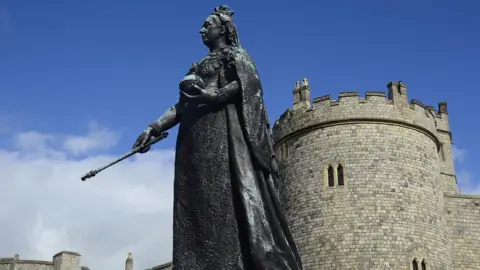 Getty Images
Getty ImagesThe first ever online catalogue of the UK's statues has been unveiled.
The charity ArtUK has created a photographic database of 13,500 works of public art.
Queen Victoria is the most honoured person with 175 works dedicated to her. The data also shows 77% of people depicted are male, 17% female and the rest a mixture of the sexes.
The catalogue, which is now available online, also reveals there more than 20 statues to dogs and cats.
Here are a few of the statues with a story to tell.
1. Queen Victoria still reigns
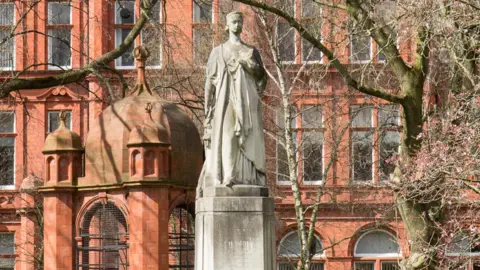 Alamy
AlamyThe most honoured person in Britain is a woman - Queen Victoria has 175 statues and memorials erected in her name.
This statue (above) in Salford is one of the few to portray her as younger woman.
It was erected after the Queen's visit to Manchester and Salford in 1851. Most of the other Queen Victorias were installed in the 1890s and 1900s.
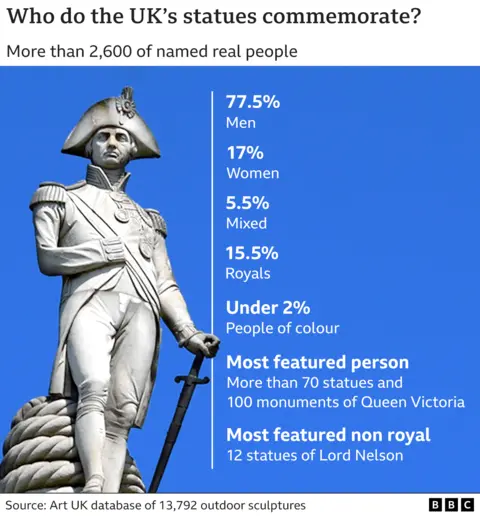
However, men still outnumber women by more than four to one.
There are more than 100 generals and more than 50 admirals. Lord Nelson has 12 statues, Gladstone six.
Much has been done in recent years to try to improve the gender disparity.
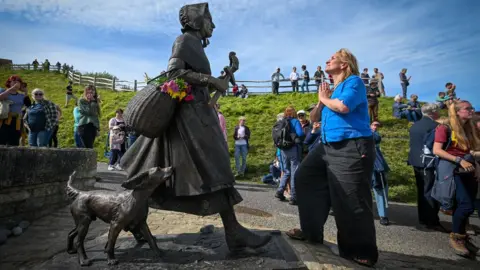 Getty Images
Getty ImagesOne recent installation is Mary Anning, the fossil hunter, in Lyme Regis.
The work, by artist Denise Dutton, is just the latest in a series of women she has recently portrayed, among them the suffragette, Oldham's Annie Kenney and a memorial to the Women's Land Army.
"There's just been a thrust over the last couple of years to show what women have done," she says. "I wanted to show she was a woman of purpose. I wanted her striding off. She was quite determined."
One problem in capturing a likeness is how often women were overlooked in their time and did not receive official portraits. There is just one painting and one pastel of Mary Anning to work from.
The likeness of her dog Tray came from Anning's own sketch.
2. The Brown Dog of Battersea
Allow Twitter content?
When protesters in Bristol tore down the statue of Edward Colston because of his links to slavery, it made headlines.
The catalogue reveals that there are still a few remaining memorials to people with close links to the slave trade.
This number might go up as more biographical detail is added to the entries.
However, this was not the first time a statue had led to public outrage. In 1906, a statue of a small brown terrier was erected in Battersea.
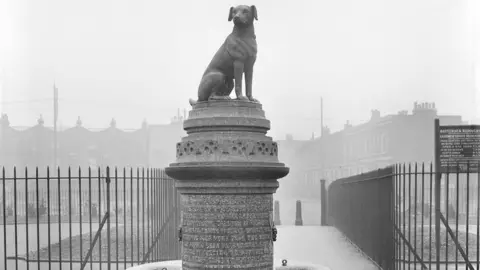 Historic England Archive
Historic England ArchiveIt was a memorial to a dog that had been dissected in a medical demonstration.
The statue led to years of protests, rioting and eventually the original brown dog being removed in the middle of the night in 1910. A replacement statue was erected in 1985.
3. Where's Steve?
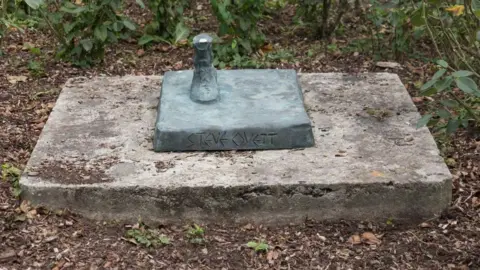 ArtUK
ArtUKThe empty plinth of Edward Colston is not the only missing statue in the catalogue.
This foot belonging to the runner gold medal winning, middle distance runner, Steve Ovett.
The statue in Brighton was stolen in 2007.
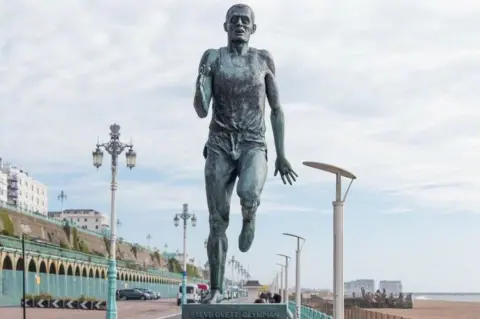 Lawrence Suss/ArtUK
Lawrence Suss/ArtUKA new Steve was installed on Brighton seafront in 2017, but it is far from the only statue to have been taken.
4. Dudley the Cat
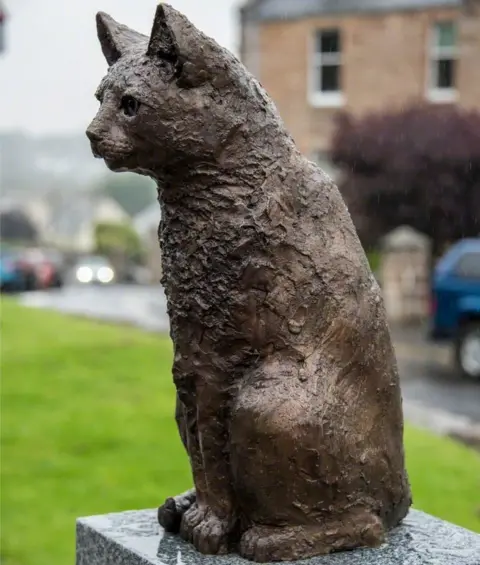 Gordon Baird/ArtUK
Gordon Baird/ArtUKDudley the Cat is one of more than 20 cats and dogs to receive their own statue.
However Dudley, by sculptor David Annand, is also a memorial to his owner, Liz Burrows.
Liz lived by the Union Canal in Linlithgow and was a leading figure in Burgh Beautiful, a programme to enhance the local area.
When Liz died in 2012, this sculpture of her beloved rescue cat, Dudley was erected in her honour.
5. The Duke of Wellington (with traditional traffic cone)
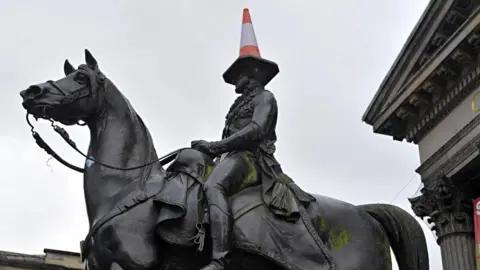 Getty Images
Getty ImagesYes, the catalogue's official portrait of The Duke of Wellington in Exchange Square in Glasgow has him wearing a traffic cone.
Erected in the 1840s, the statue of the Duke on his horse, Copenhagen, stands outside the city's modern art gallery.
However, in recent years he has regularly been seen wearing a traffic cone, and at one point a blue and yellow knitted cone in support of Ukraine.
All attempts to free him of his plastic headgear are quickly thwarted. The cone has become part of the artwork.
6. One Kangaroo
Allow Twitter content?
Beyond famous cats and dogs, there are many animal statues.
Cardiff has Billy the Seal, Scotland has two statues of Corporal Wojtek the soldier bear in Edinburgh and Duns.
Wojtek was adopted by the Polish army and is said to have helped carry ammunition during the Battle of Monte Cassino.
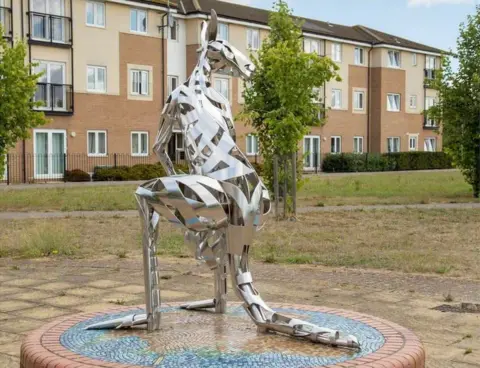 Tracy Jenkins/ArtUK
Tracy Jenkins/ArtUKThere is, however, according to the catalogue only one kangaroo in Hobart Place, Melbourne, Chelmsford.
However, the catalogue is still being added to so if someone discovers a second kangaroo ArtUK would be glad to hear.
